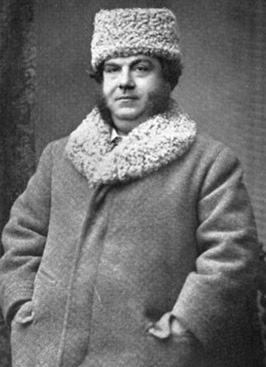
Robert Lawson Tait (1845-1899) was a Scottish physician, famous for his pioneering research and treatments in gynecology and abdominal surgery. Educated in his native Edinburgh, Tait moved south after graduation and set up practice in Birmingham.
Tait became interested in reproductive medicine after watching helplessly as two patients suffered agonising deaths from ectopic pregnancies. He began to research, develop and undertake surgical interventions for conditions with high mortality rates. In his three-decade career, Tait conducted and refined several groundbreaking operations, including excision of the ovaries, ruptured Fallopian tubes, appendectomies and gallbladder removal.
For all his surgical brilliance, however, Tait was prone to antiquated views, particularly about the causes of ovarian and reproductive disease. Like less esteemed doctors, Tait rejected viral and bacterial causes and instead put a good deal of blame on social factors.
“My first advice was that the patient should be removed from school and that for six months, all instruction, especially in music, should cease. I notice music especially, for I am quite certain that instruction in that art, as carried out in boarding schools, has to answer for a great deal of menstrual mischief. To keep a young girl during her first efforts of sexual development, seated upright on a music still with her back unsupported, drumming vigorously at a piano for several hours, can only be detrimental.
In life, Tait was a charismatic but unusual figure. Short and rotund, he waddled like a penguin and was occasionally given to eccentric dress. He was also a big drinker and notorious womaniser, who apparently enjoyed using the female reproductive organs as well as treating them. In his final years, Tait was accused of fathering an illegitimate child with one of his nurses, a scandal that brought him some public discredit.
Tait’s premature death in 1899 was ascribed to renal failure, though some believe it was brought on by venereal disease.
Source: Robert Lawson Tait, Diseases of Women, 1879. Content on this page is © Alpha History 2019-23. Content may not be republished without our express permission. For more information please refer to our Terms of Use or contact Alpha History.
